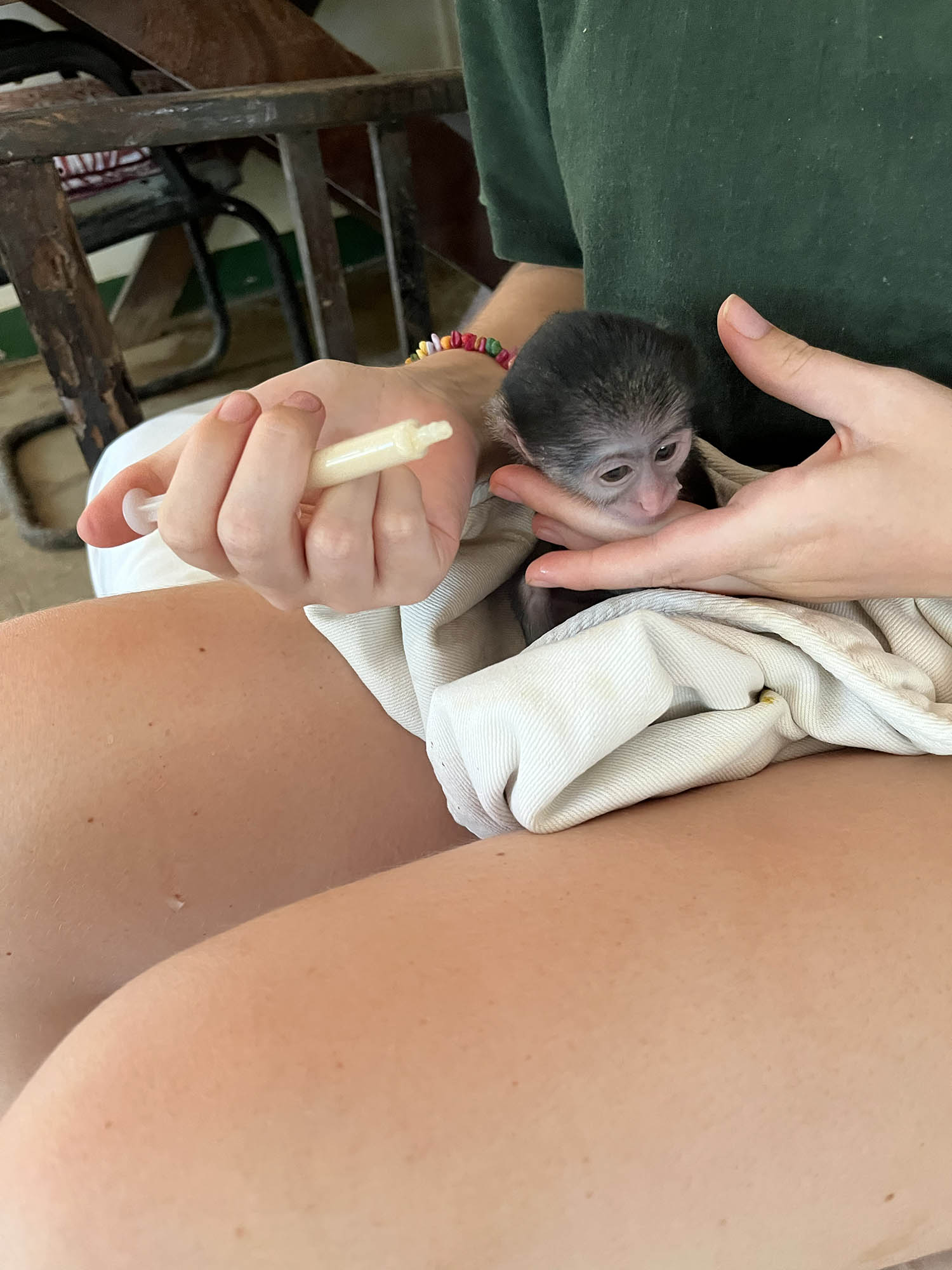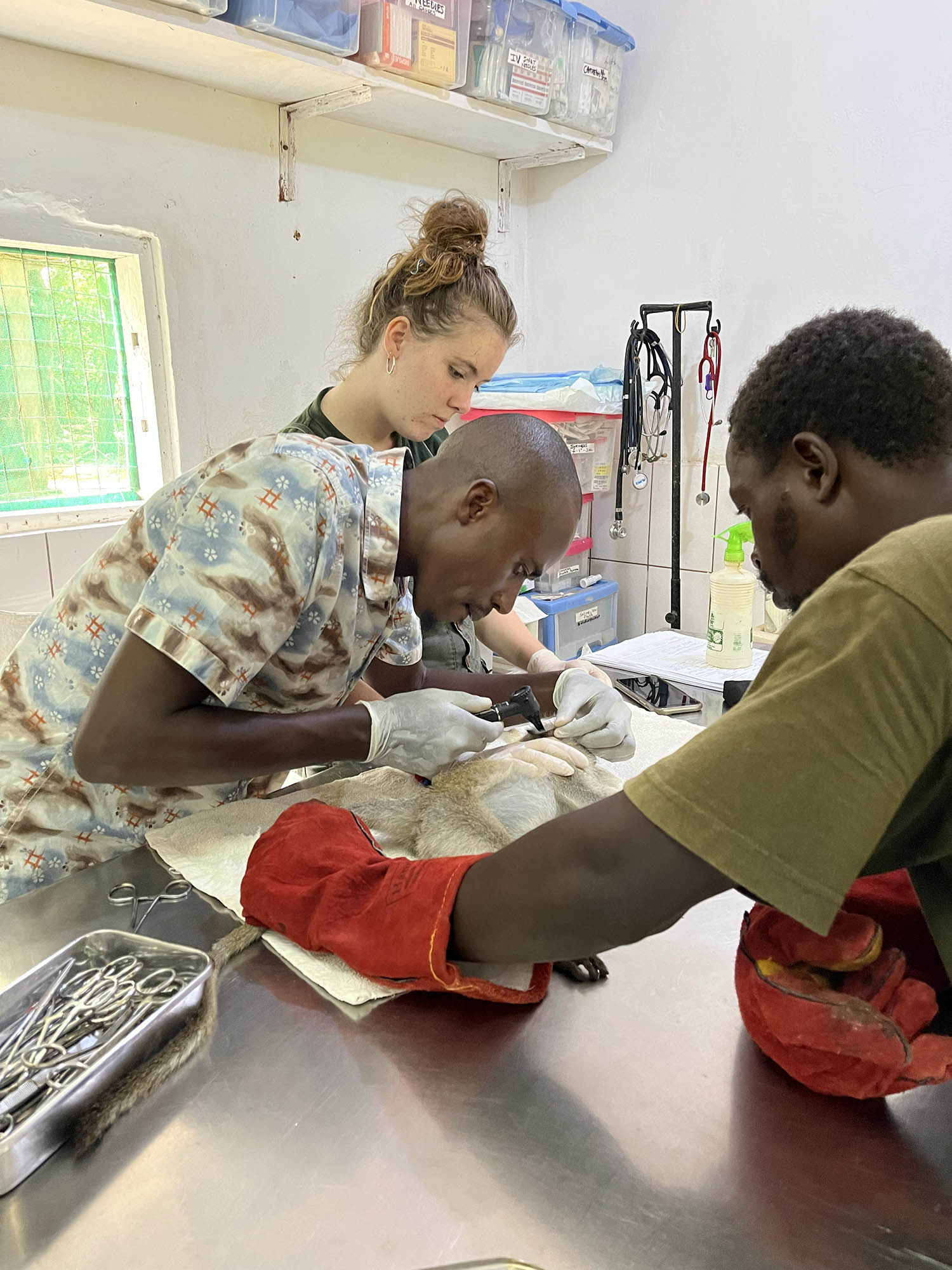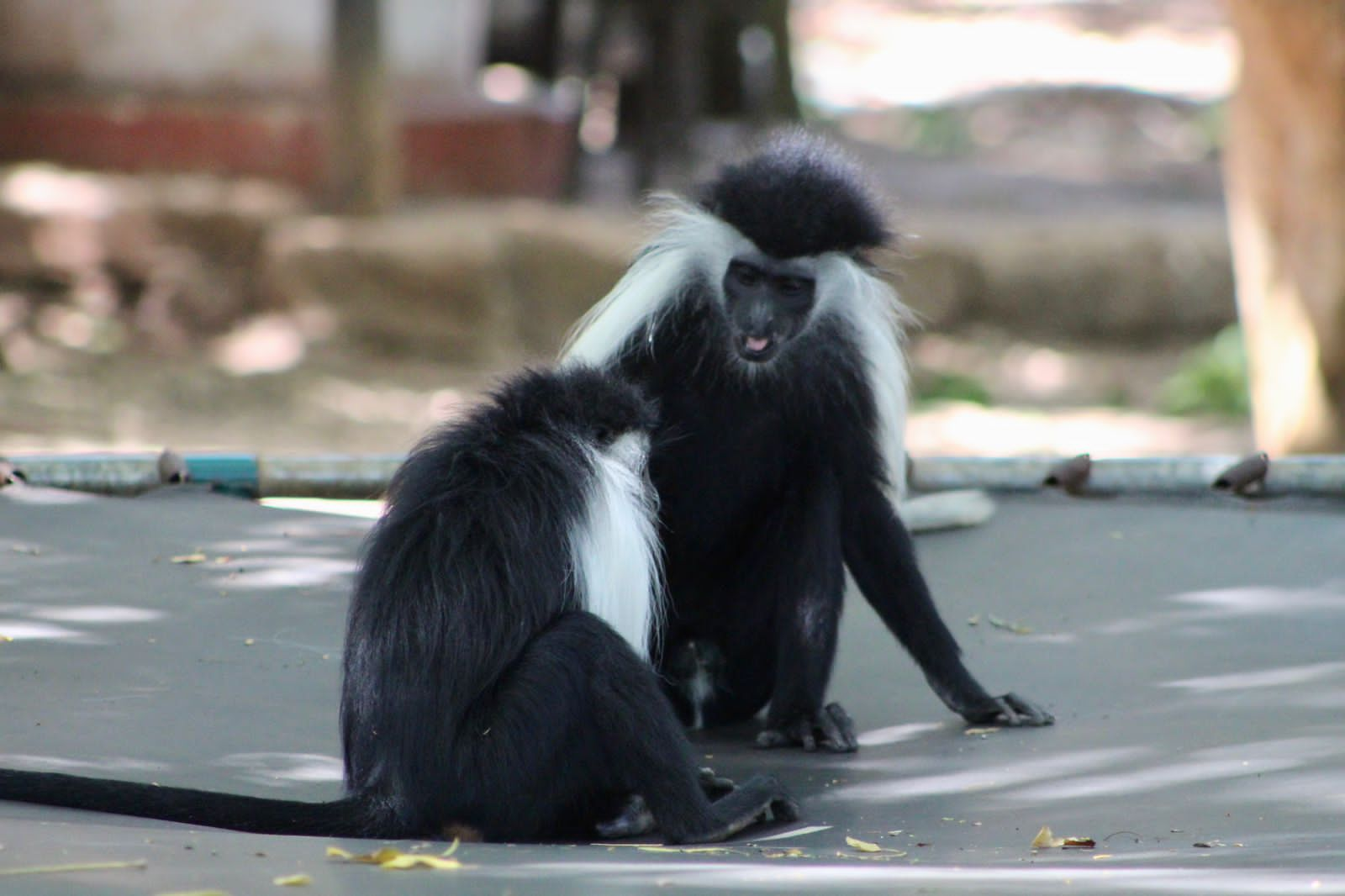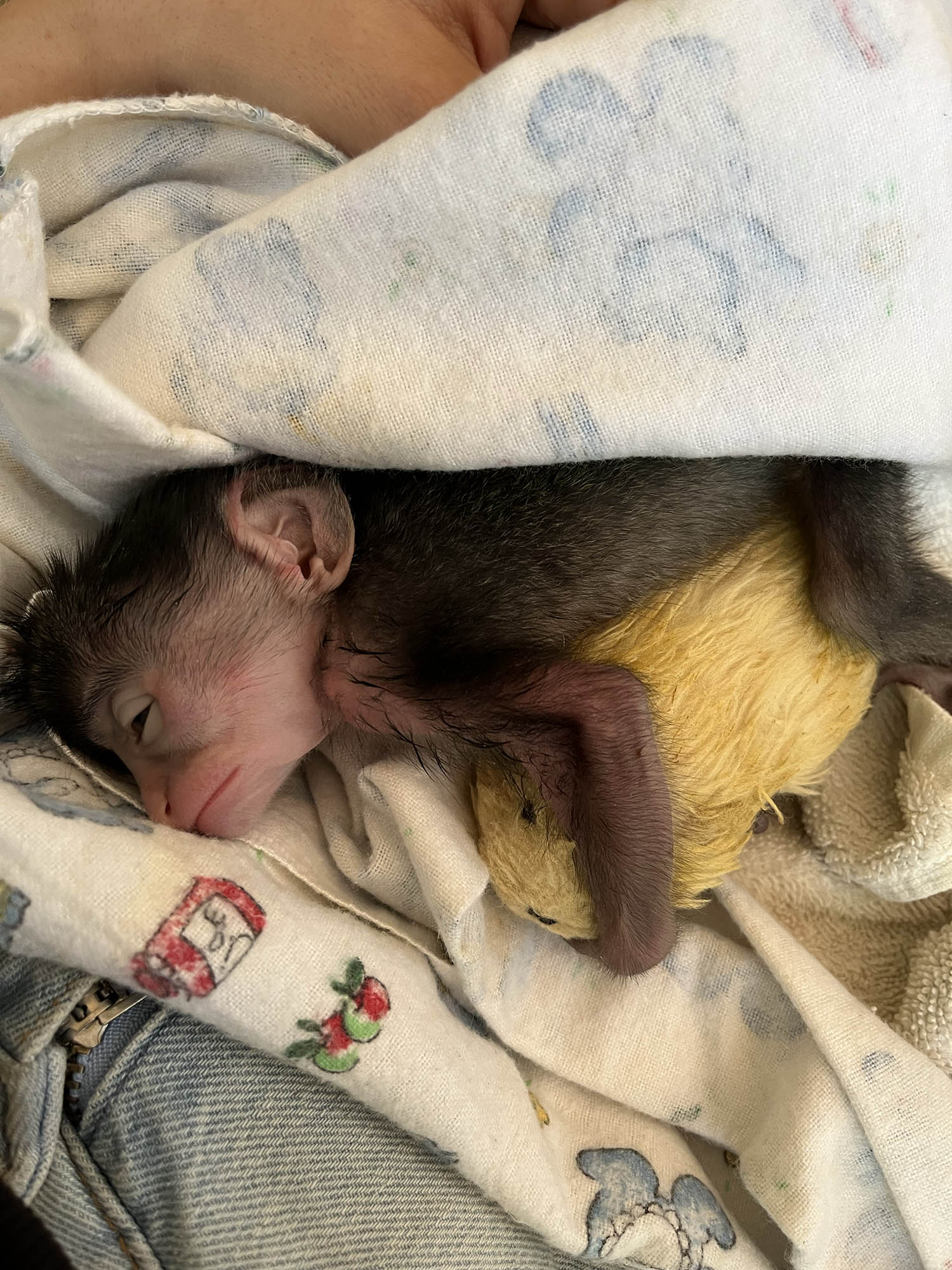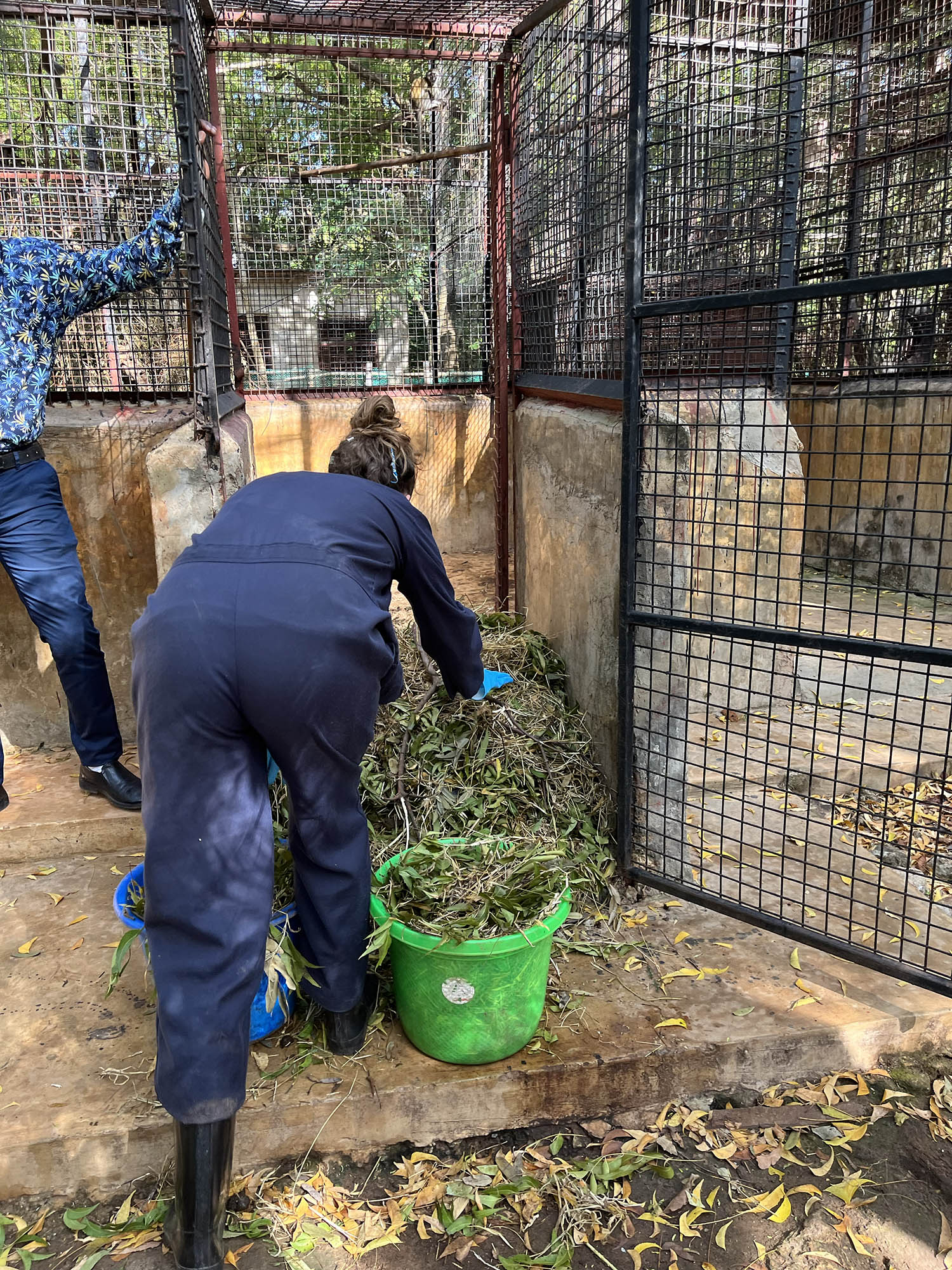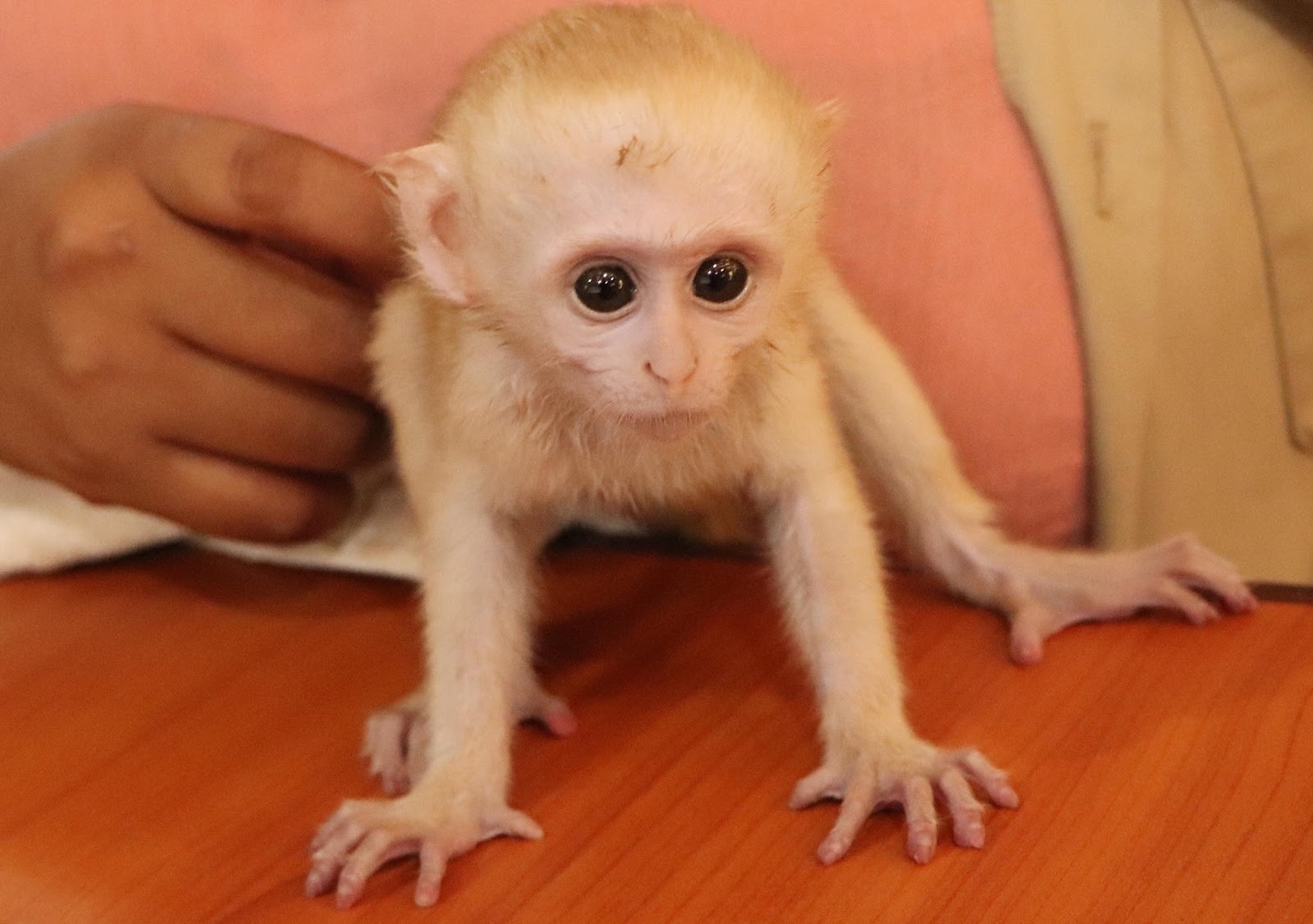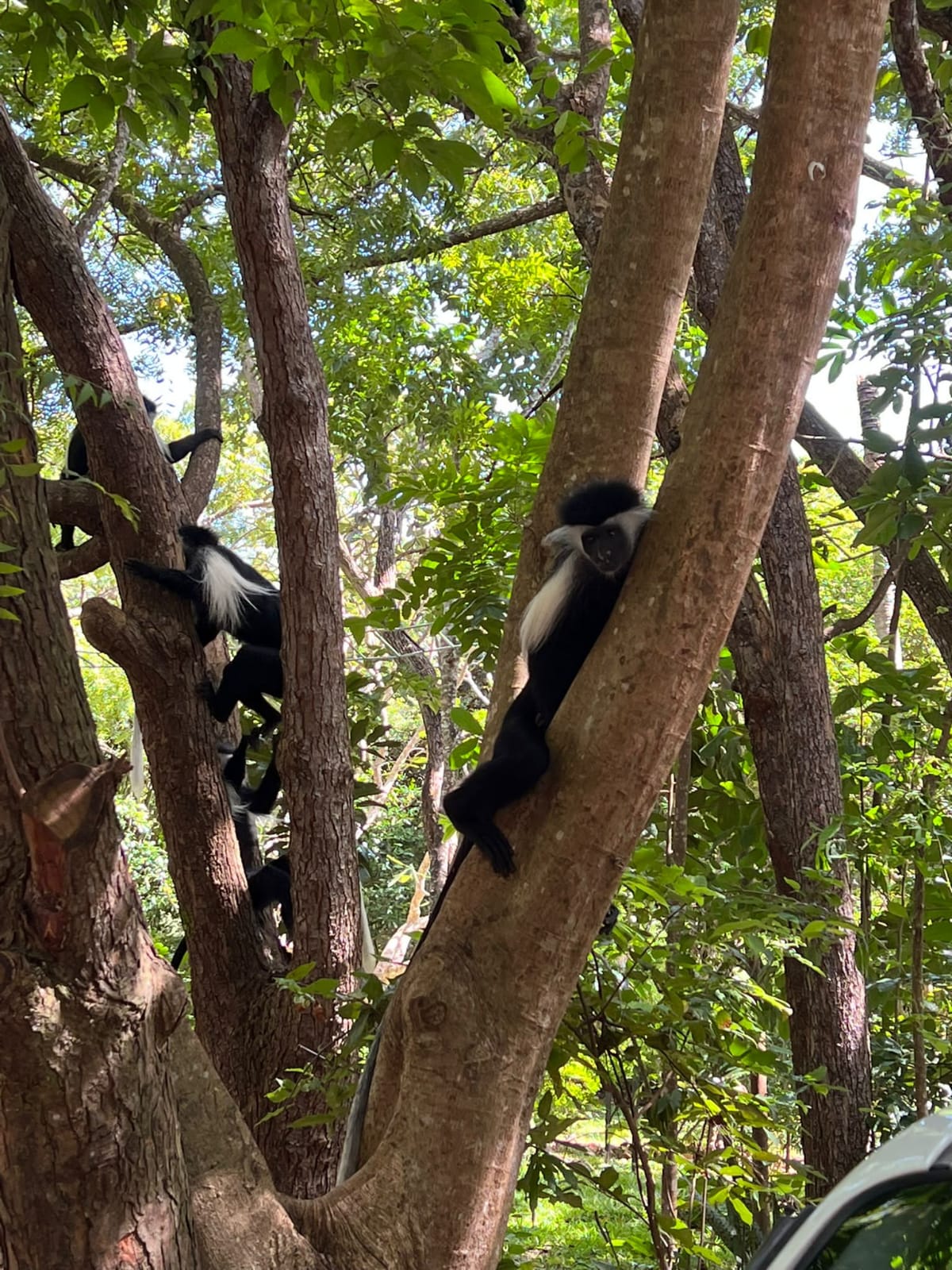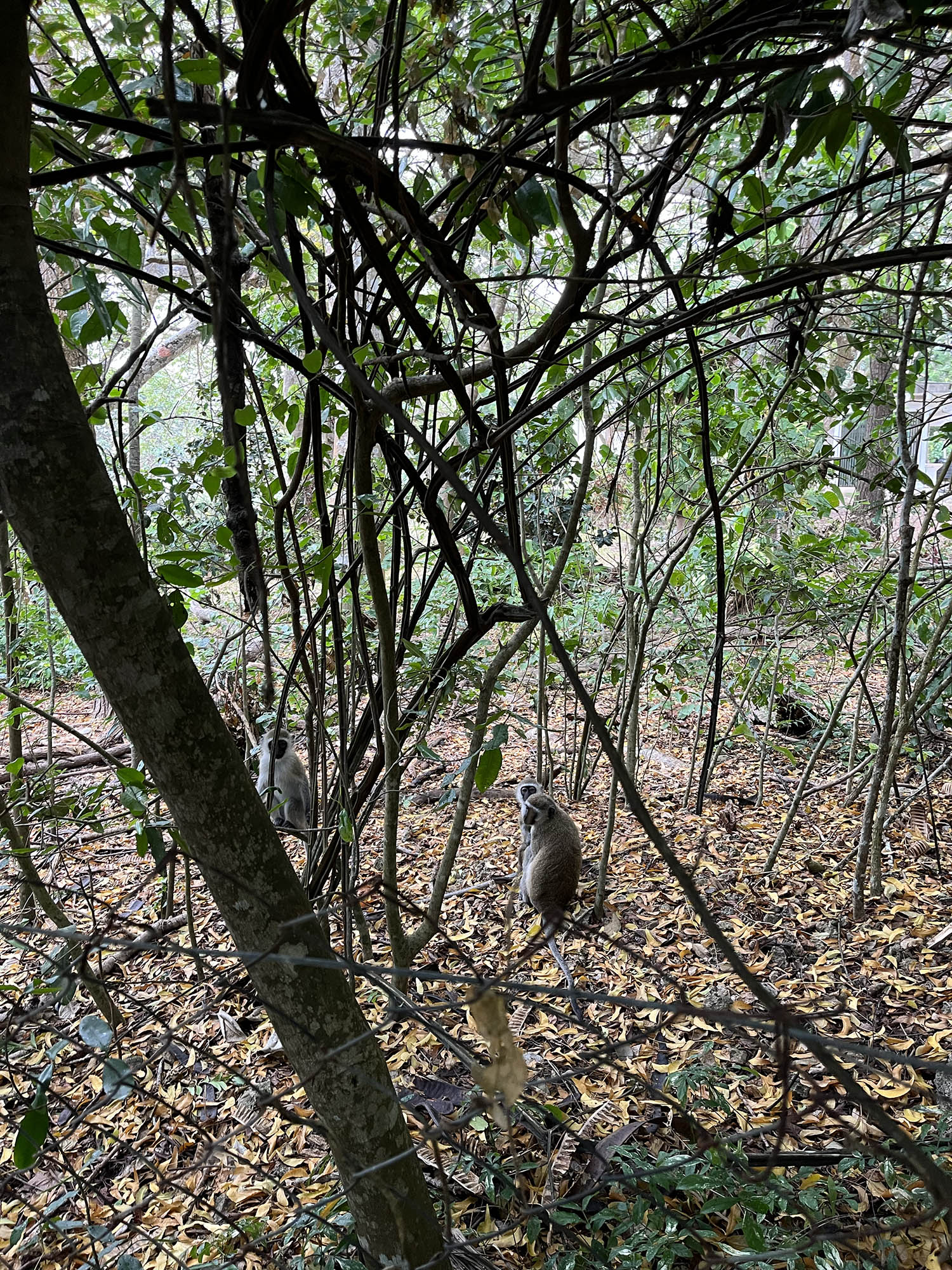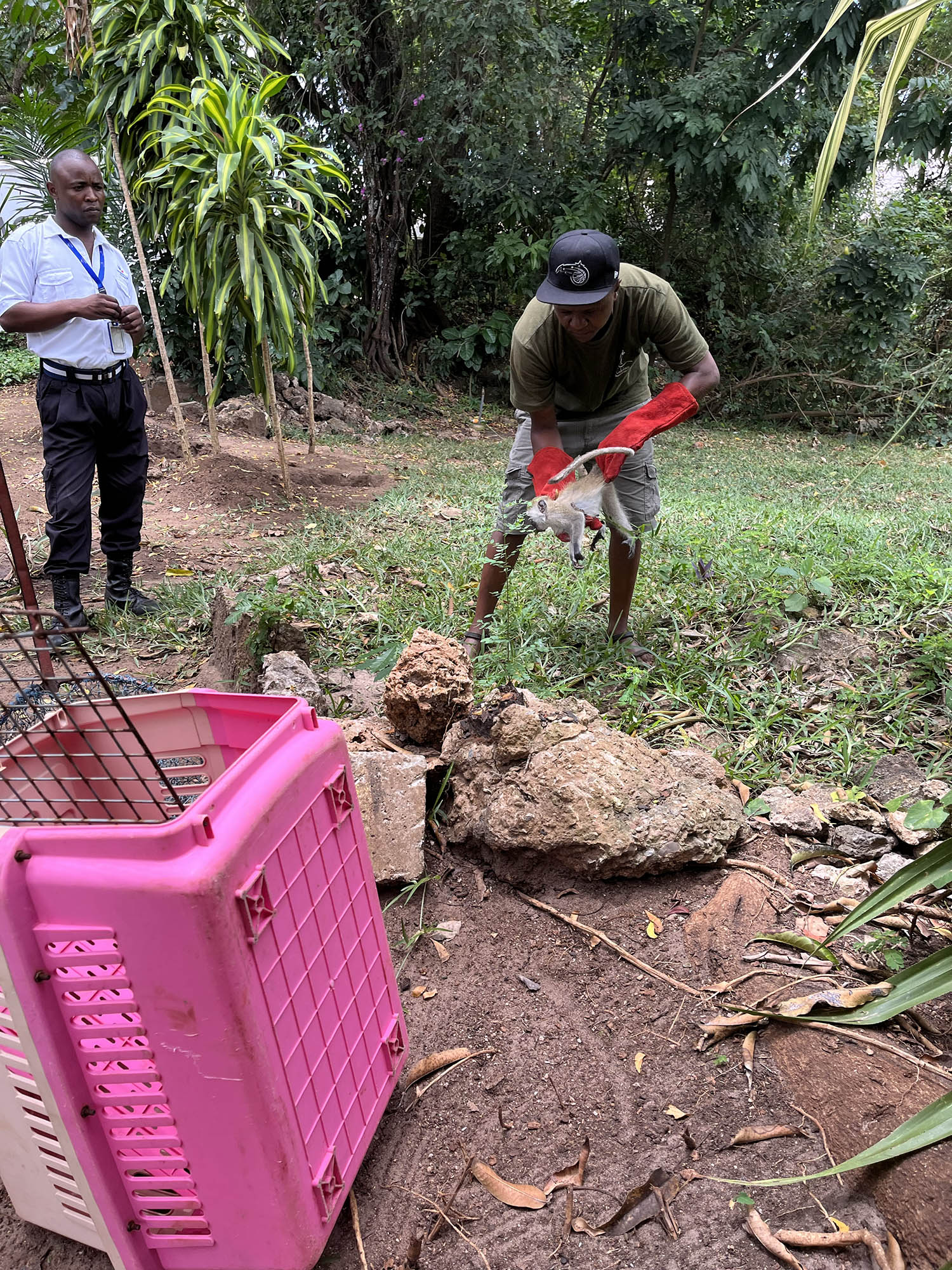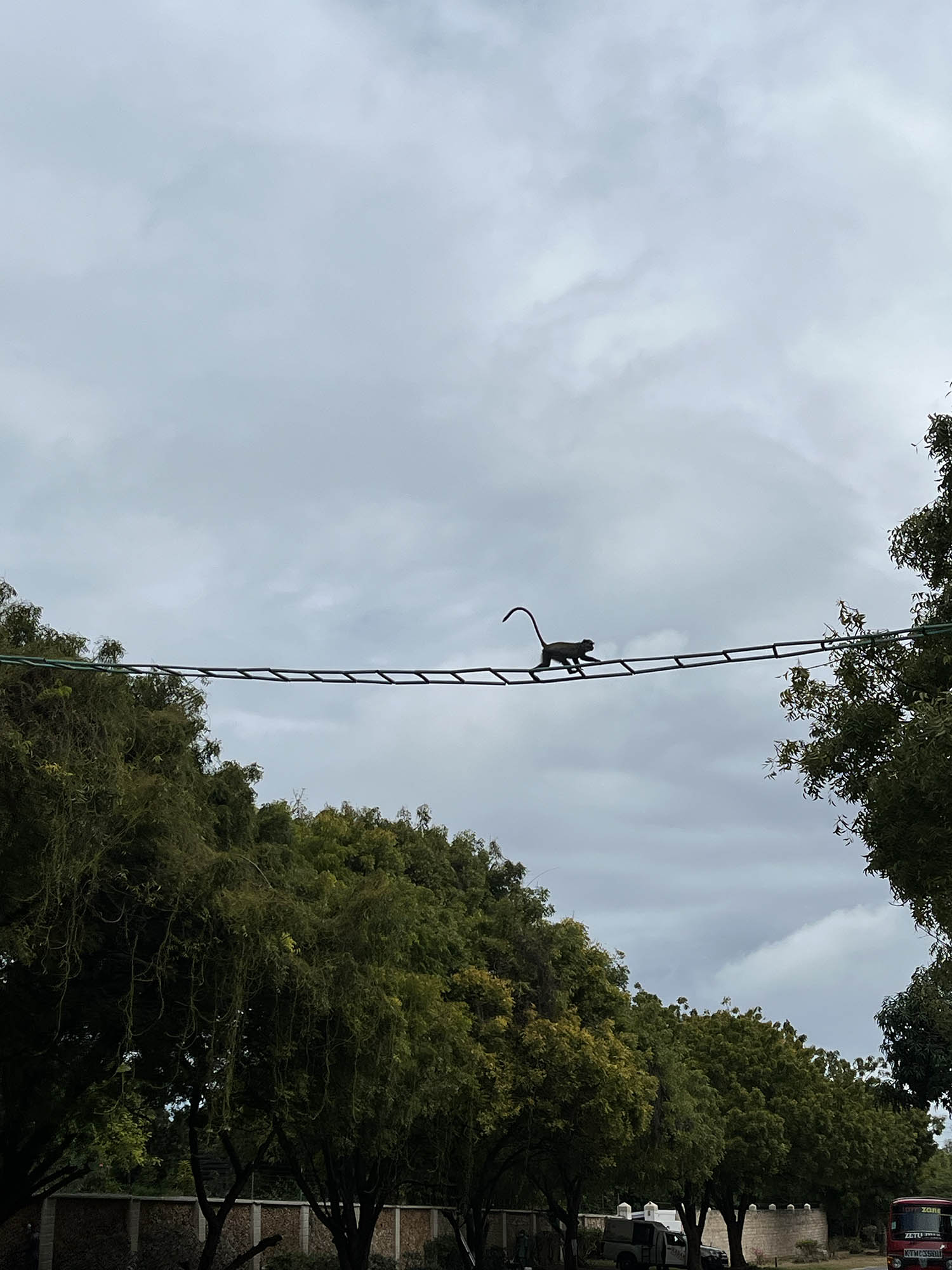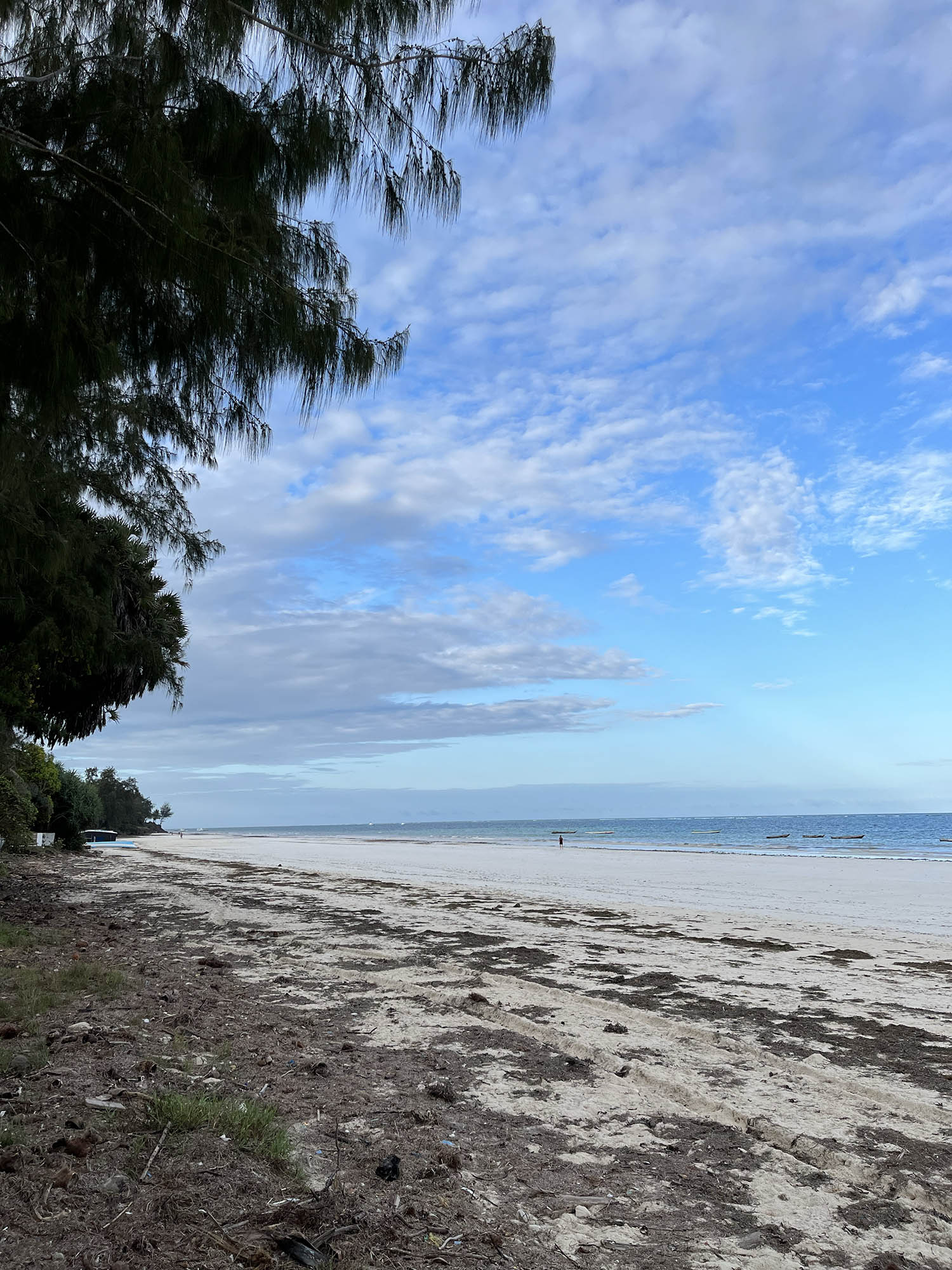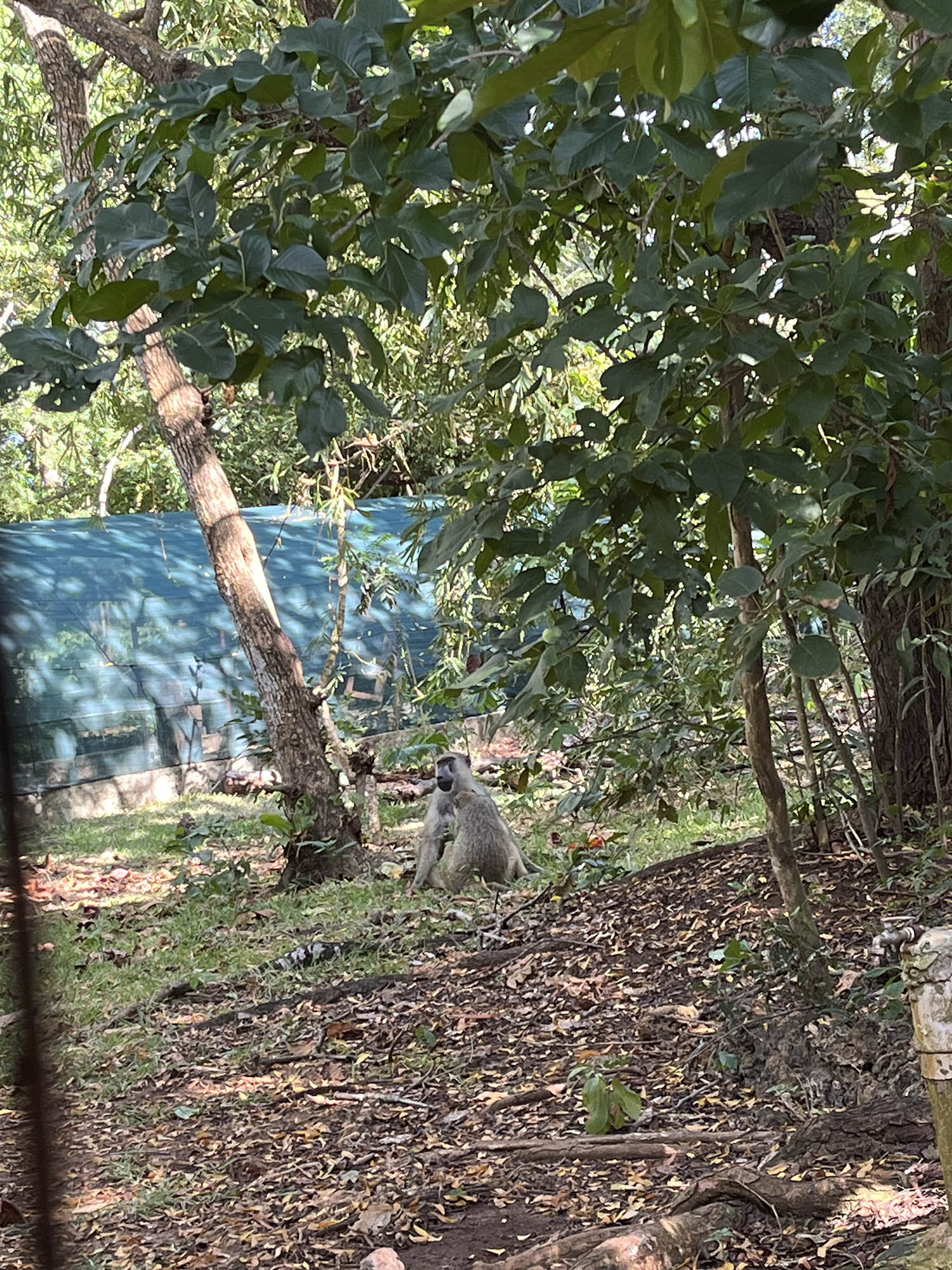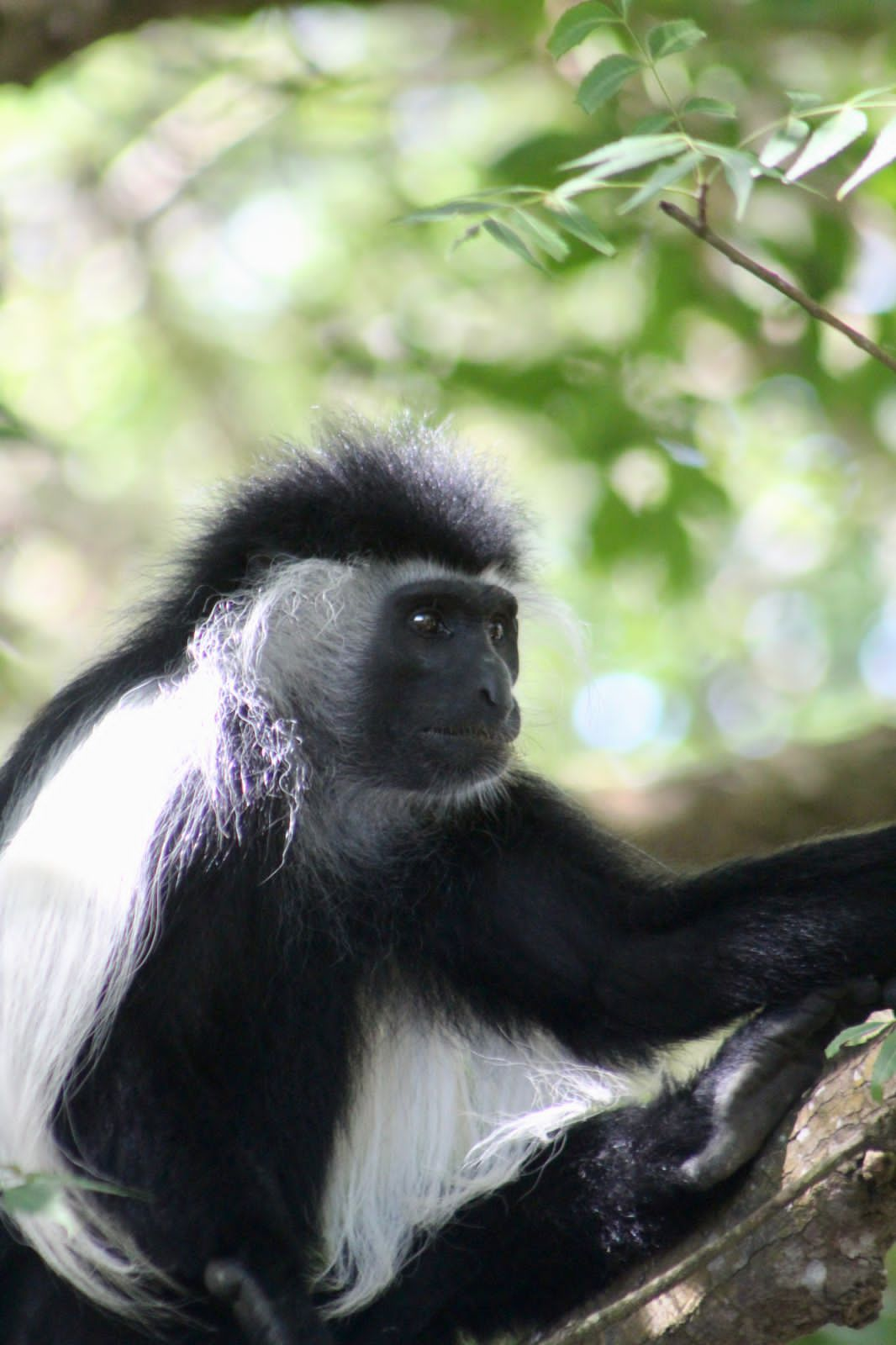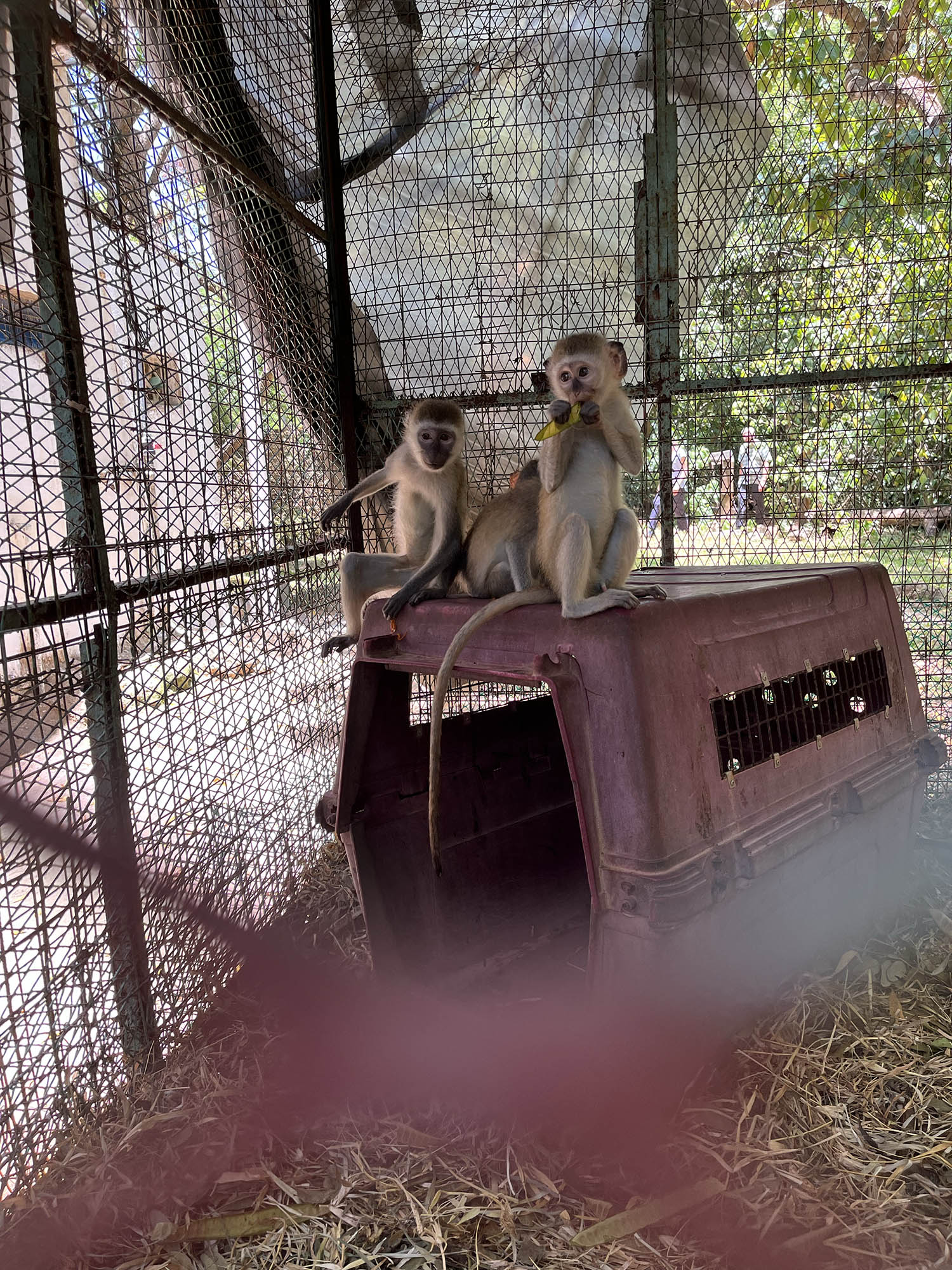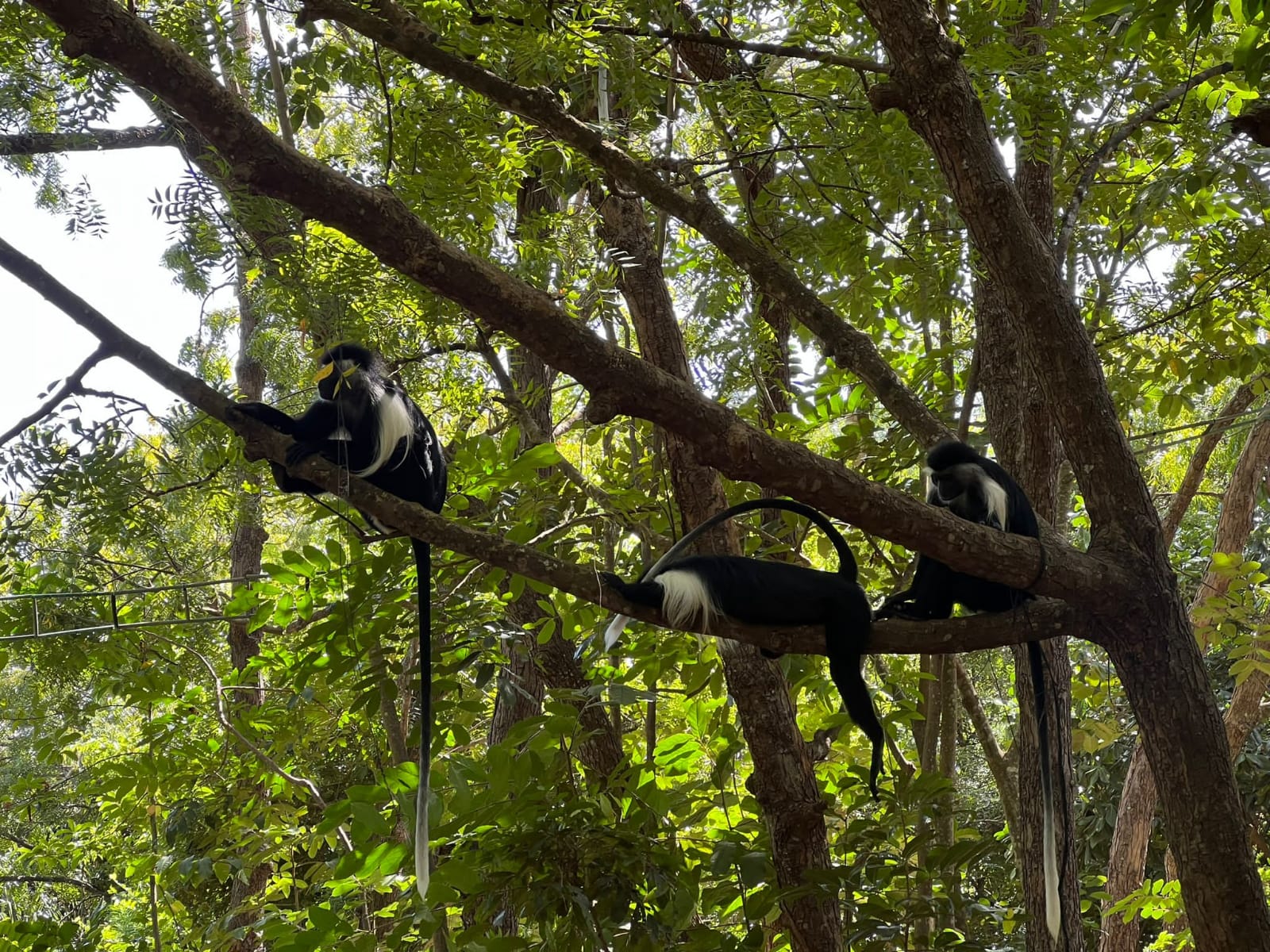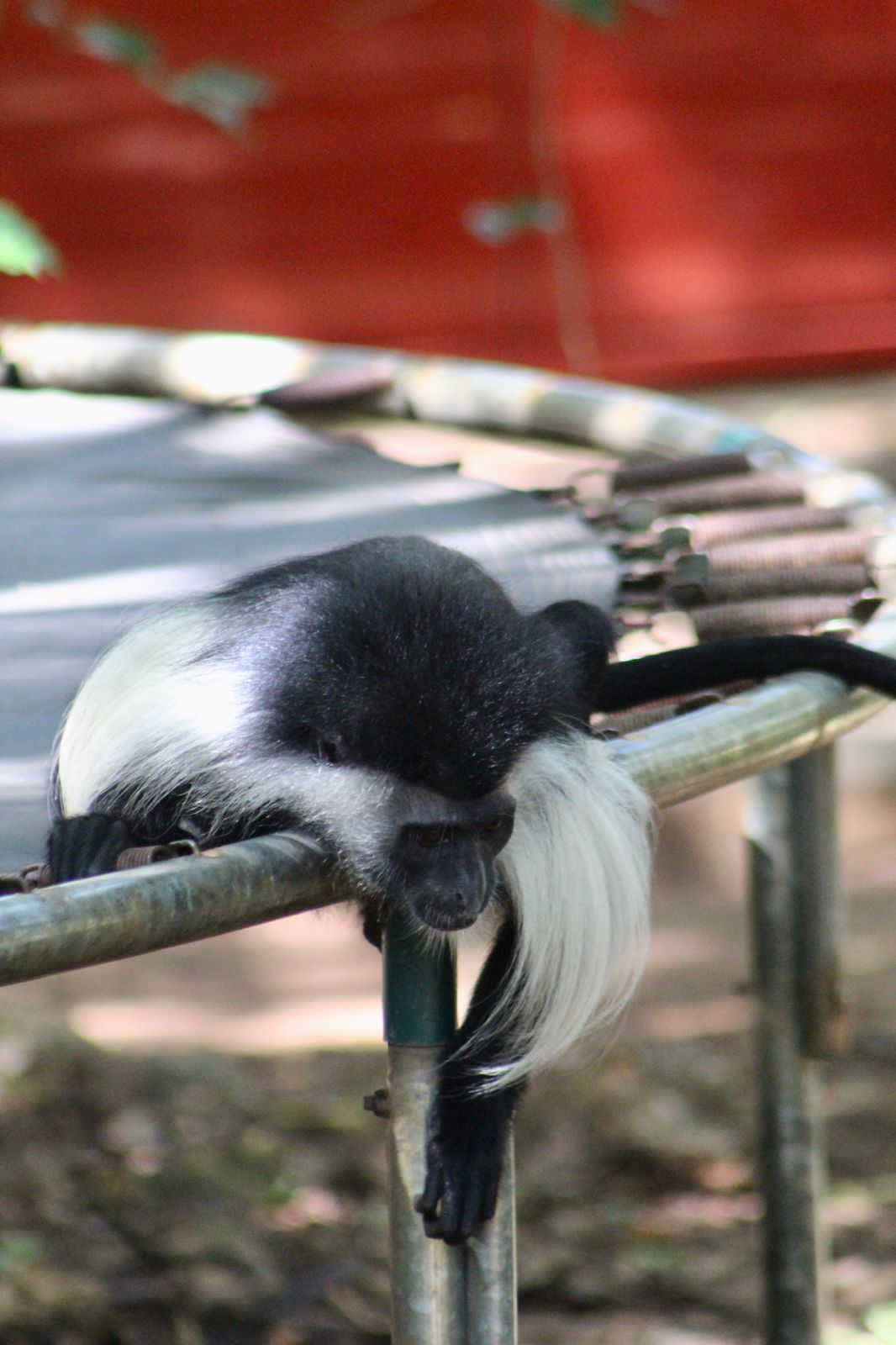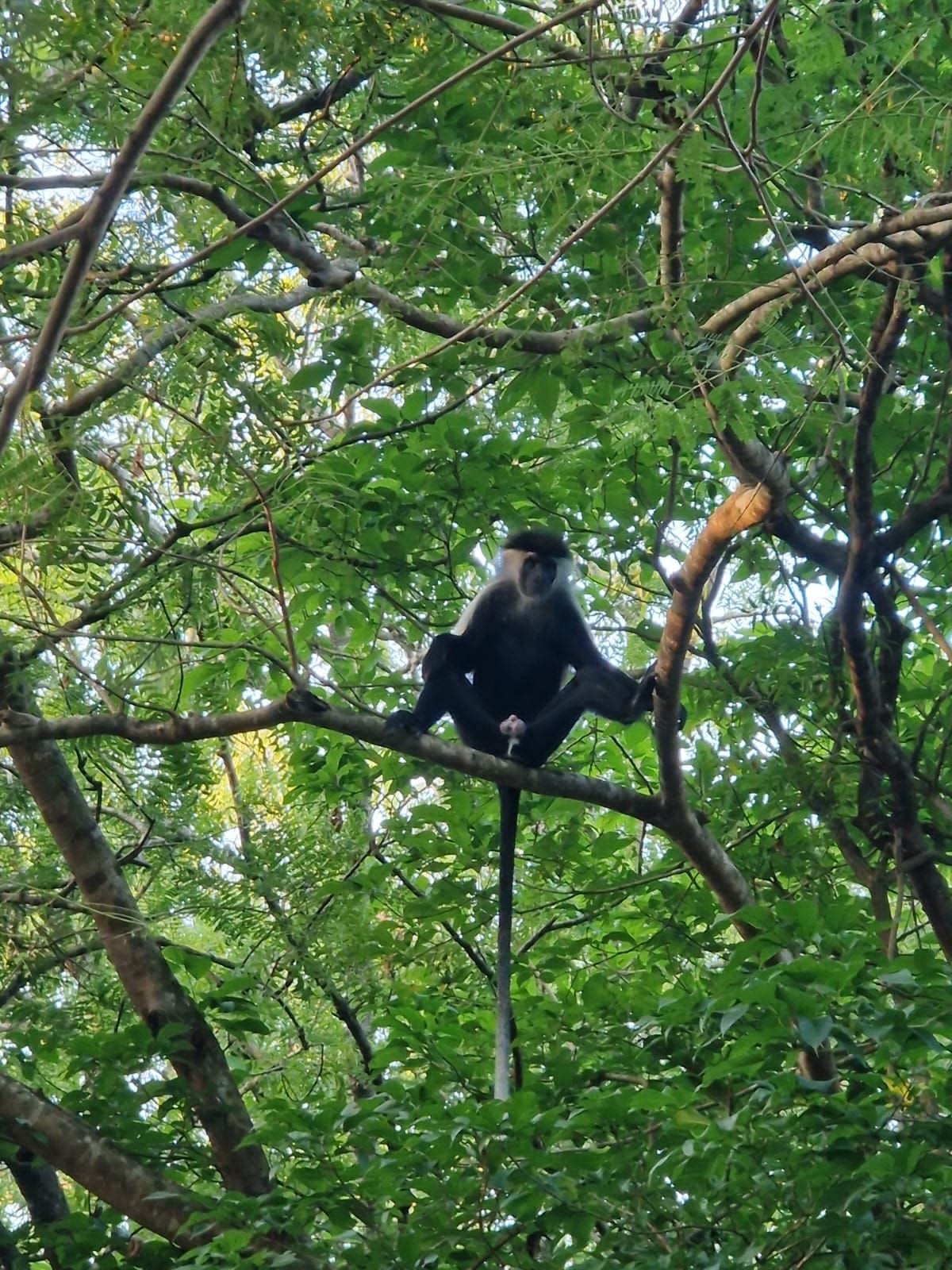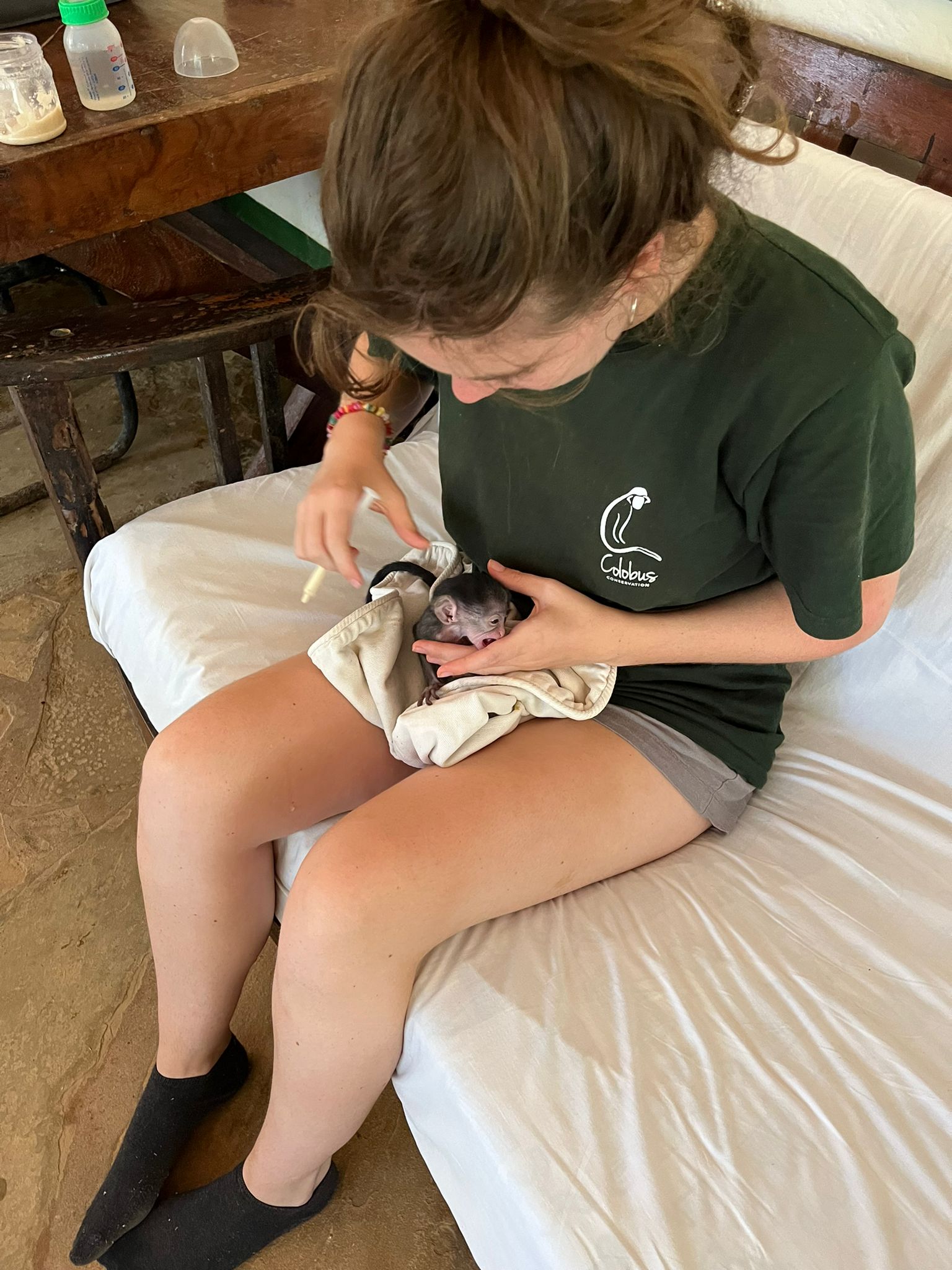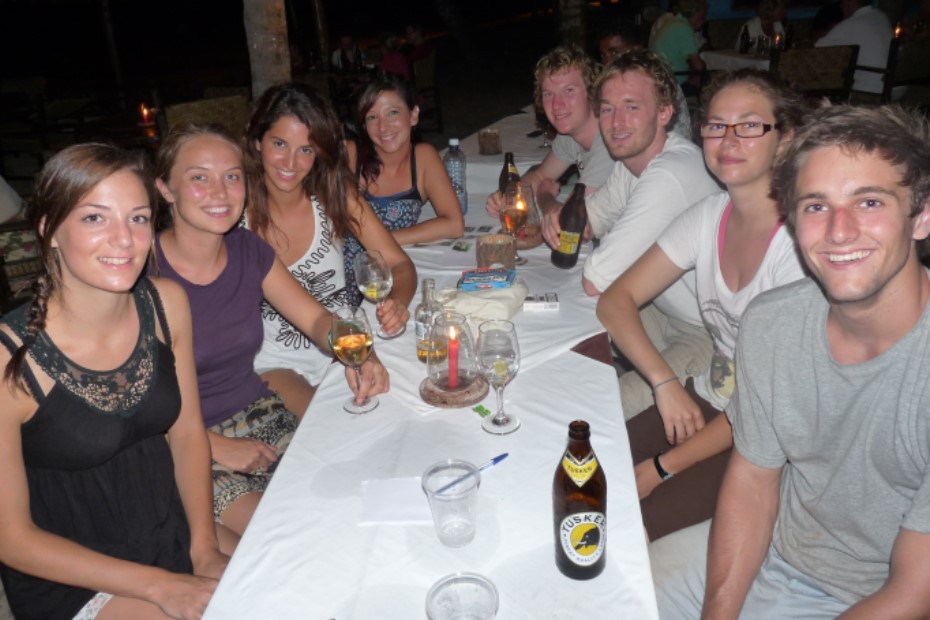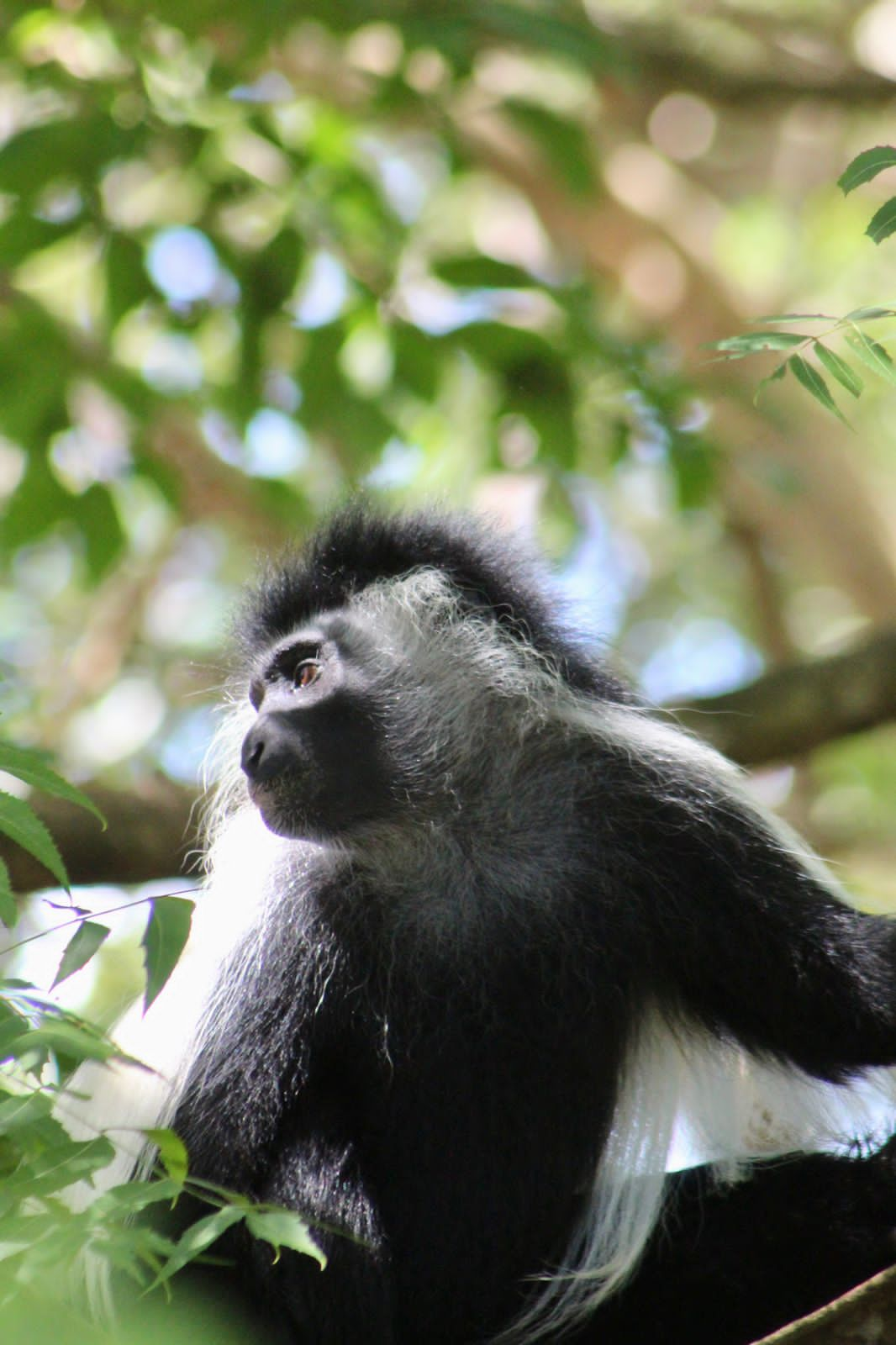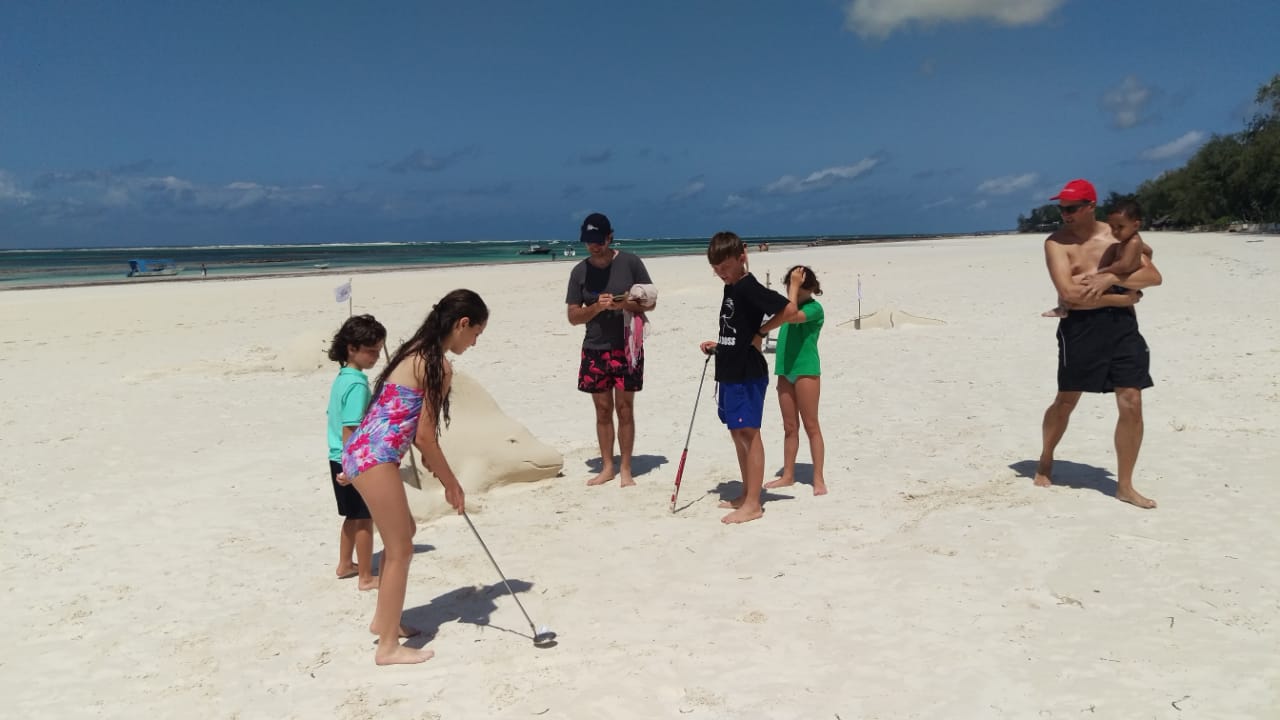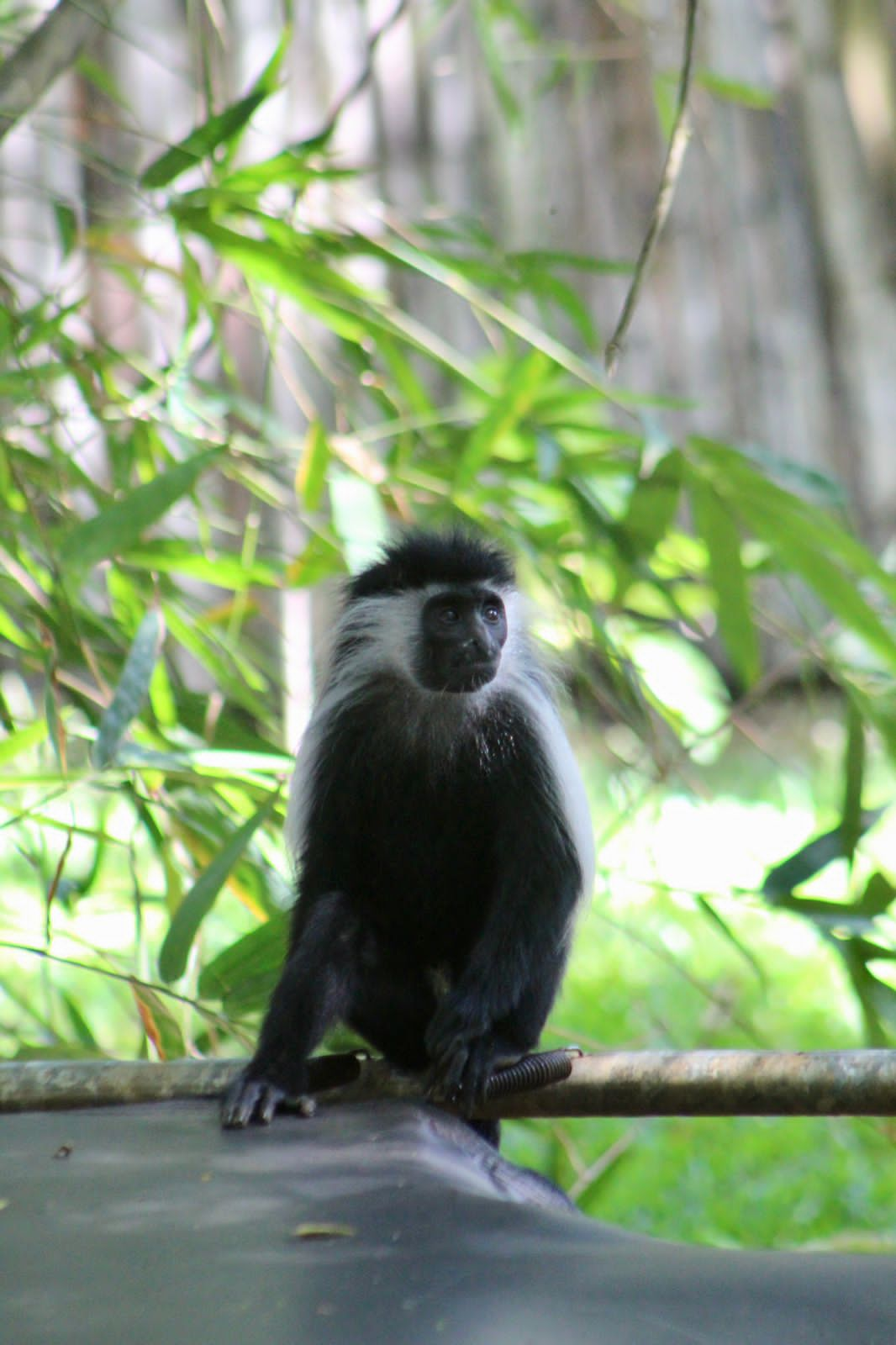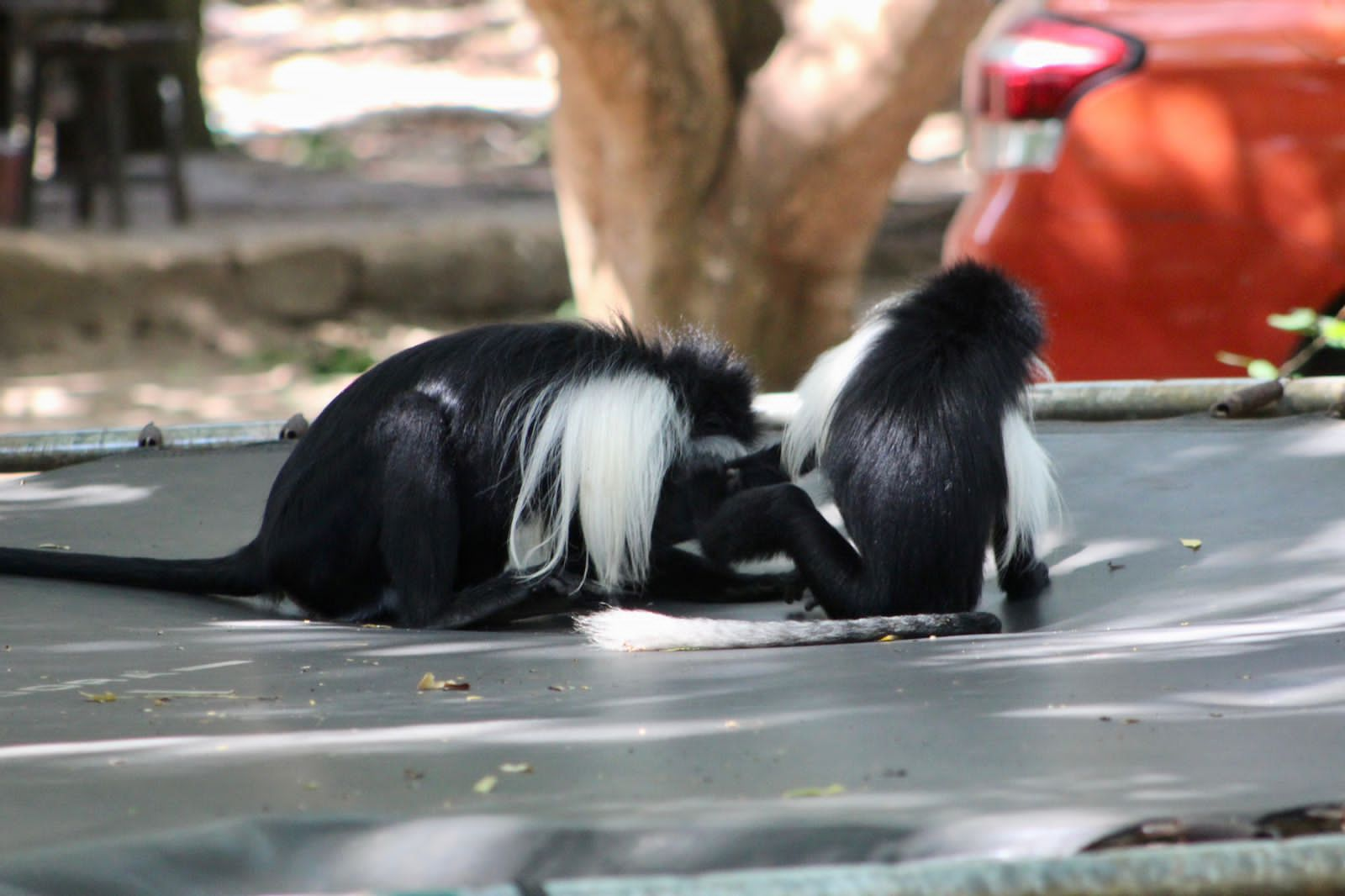Help rescue vulnerable &
endangered primates
Assist with critical conservation work on the tropical Kenyan coast
-
Duration
1-12 Weeks -
Minimum age
18+ -
Start dates
1st & 3rd Saturday -
From
£340
-
Duration
1-12 Weeks -
Minimum age
18+ -
Start dates
1st & 3rd Saturday -
From
£340
Kenya Monkey Sanctuary
Quicklinks
Help rescue vulnerable primates and assist with critical conservation work on the tropical Kenyan coast.
There are approximately 1,400 monkeys living within the beach town of Diani, including 6 different primate species; Vervet, Sykes, Yellow Baboons, 2 types of Galagos and the nationally threatened Angolan black and white colobus monkey. However, due to growing tourism and development in the local area, they are facing a number of threats such as a lack of natural habitat, road traffic accidents and injuries from electrical wires.
Your varied and hands-on role will allow you to help in monkey rescues and rehabilitation,,= reforestation, community outreach and more. You will become an integral part of the team and gain a huge amount of knowledge about wildlife conservation.
This is your chance to make a real difference in the conservation of primates, whilst also having the time of your life enjoying the beautiful beaches of Kenya.
Background to the monkey sanctuary
For many years primates, in particular the Angolan black and white colobus monkey, have called Diani home. The biodiversity of the coastal forest made it a great habitat for wild monkeys. However, due to its white sandy beaches and tropical climate, Diani has also seen a huge rise in human development in recent years.
Many of the forest land is being sold as prime real estate for holiday homes, hotels or resorts. Although such development can be positive, it has come at a cost to the lives of primates. Deforestation of native trees that the primates call home as well as the planting of invasive and foreign species, means that many primates have lost their habitat. With more tourists and development in the area, this has led to more traffic, which has resulted in more primate road accidents along with an increase in primate electrocutions.
On top of this there are many monkeys who are being kept illegally as pets and being denied a life in the wild.
The local team are working closely in the community to reduce the number of deaths through reforestation, colobridges (bridges across the road) , insulation of electrical wires and education about the importance of keeping primates in the wild.
Alongside the team and other volunteers from around the world, you can help to promote conservation in the local area to ensure the survival of the vulnerable Angolan black and white colobus monkey and other primates.
Where will I be volunteering?
The conservation programme is located right on the beach in the coastal town of Diani. Diani has plenty of shops, restaurants, bars and beautiful beaches, making it a popular destination for tourists and holiday makers.
The local team started work in 1997 as a direct result of local residents becoming extremely concerned by the impact human development was having on local primate species, especially the Angolan black and white colobus.
Sadly the need to continue their work has increased due to even further development in the Diani area. To meet demands, the team have expanded its programme, with a particular focus on habitat conservation. The team works closely with local hotels, developers and schools in the area to help rebuild a natural habitat and reduce threats to the primates.
There is also a rehabilitation centre and vet on site for any injured or unwell primates as well as monkeys that were previously kept illegally as pets. After legal action against the owners has been taken, the monkeys are brought to the rehabilitation centre. Here the team teaches these monkeys behaviours that they may not have learnt as pets, such as how to interact with other monkeys and how to find food. Human interaction is kept to a minimum to teach them that humans are not friends, helping prepare them for a new life in the wild.
Due to its location amongst some of the last remaining forests in Diani, the office and information centre is home to many primates. As you go about your day you can see, vervets, sykes, baboons and colobus swinging above your head.
To help raise awareness in the local community and tourists, the organisation is open for eco-tours Monday - Friday, meaning you will often see visitors during the day. The local team are extremely passionate and knowledgeable about what they do and will be sure to inform and involve you as much as possible during your time as a volunteer.
What is my role?
Your role will be to assist the team in all aspects of their conservation efforts. You will be considered part of the team and any skills you can offer will be greatly appreciated and put to use. You days will vary from day to day but some of the usual activities include:
Assisting on animal welfare rescues - The team have a hotline so the community can contact them if they see any injured or unwell monkeys. The team generally receives a rescue call every day. You will be able to join them in rescuing the monkey and observe the check ups/ treatment with the vet at the on-site clinic.
Feeding primates and cleaning enclosures - The team aim to release any rescued primates back into the wild as soon as they can, but some may need to stay in rehabilitation whilst they receive treatment. You will be responsible for preparing their food and enrichments and keeping their enclosures clean. These need to be cleaned daily and involves sweeping, washing, hosing down and replacing branches - be prepared to get your hands dirty!
You may also assist in the rehabilitation of previous pets, as the team prepares them for the wild.
Releases - If you are lucky you may come at a time to release primates back to the wild that have been rehabilitated at the monkey rehabilitation centre.
Primate orphan care - From time to time the centre takes in orphans who have been abandoned or whose mother may have died. They need to be monitored and fed every couple of hours - this includes during the night! As they get older, you will also need to help teach them basic monkey skills such as climbing and finding food.
Community outreach and education - Join the team in educating the local community through school visits and events. You can also help in their ongoing work to teach the hotels, restaurants and other local businesses about pest management and primate protection.
Data collection and census - For around a year after they have been released the team need to collect data on the local primates in order to monitor their welfare. From a distance, you will take part in recording the behaviour, appearance and health of the monkeys around the local area. You may also take part in the annual census which happens normally in October.
Management of colobridges - Help the local team construct and maintain the colobridges that allow the monkeys to cross the road safely.
Social media and fundraising - Help with general admin tasks such as writing the newsletter and creating posts for social media. If you have any design or IT skills, feel free to share them so you can be put to good use. A few times a year the team also arranges fundraising events which you may need to help out on.
Tree nursery and forest management - Help in the on-site tree nursery and when needed plant trees in local hotels and in the community. You may also participate in tree growth surveys to monitor reforestation in the area.
What will a typical day look like?
You will be volunteering Monday to Friday, from 8am to 4pm with the occasional activity happening on Saturday. There is a tea break around 10am and an hour-long lunch break at 1pm. After 4pm you are welcome to visit the beach, go shopping or do as you please!
You will join the morning meeting at 8am with the rest of the team where you will be given your duties for the day. You will generally be placed in a different department each day - for example animal welfare, fundraising, conservation etc…
If there is a particular department you are interested in, please let the local team know and they will do their best to accommodate you.
Where will I be staying?
The volunteer accommodation is located within the grounds of the sanctuary, so you will get to enjoy being around the monkeys all day every day - and maybe get an early morning wake up call from time to time. You will be based just off Diani Beach road with plenty of shops, bars, restaurants and supermarkets within a 5 or 10 minute tuk tuk ride.
Although the accommodation is quite basic, it offers the perfect space for everyone to come together and the friendly atmosphere will make you feel at home from day one. You can watch the monkeys from the many comfortable communal areas and enjoy the private beach access at the back of the accommodation.
You will be sharing a room with up to 3 other volunteers on a single sex basis with a shared bathroom.
Other things to consider
Weekends and free time - You will have every weekend off from volunteering and this is the perfect time to explore everything this beautiful country has to offer. You are more than welcome to simply relax around the accommodation but most volunteers will use this time to travel and see the country. Further down this page you will come across many suggestions and ideas on where you could go.
Weather & fitness - Please note, Diani has a very hot climate and some of the tasks will require manual labour.
COVID 19 - For this programme you must be vaccinated against Covid-19. You will be required to send over proof before you arrive.

